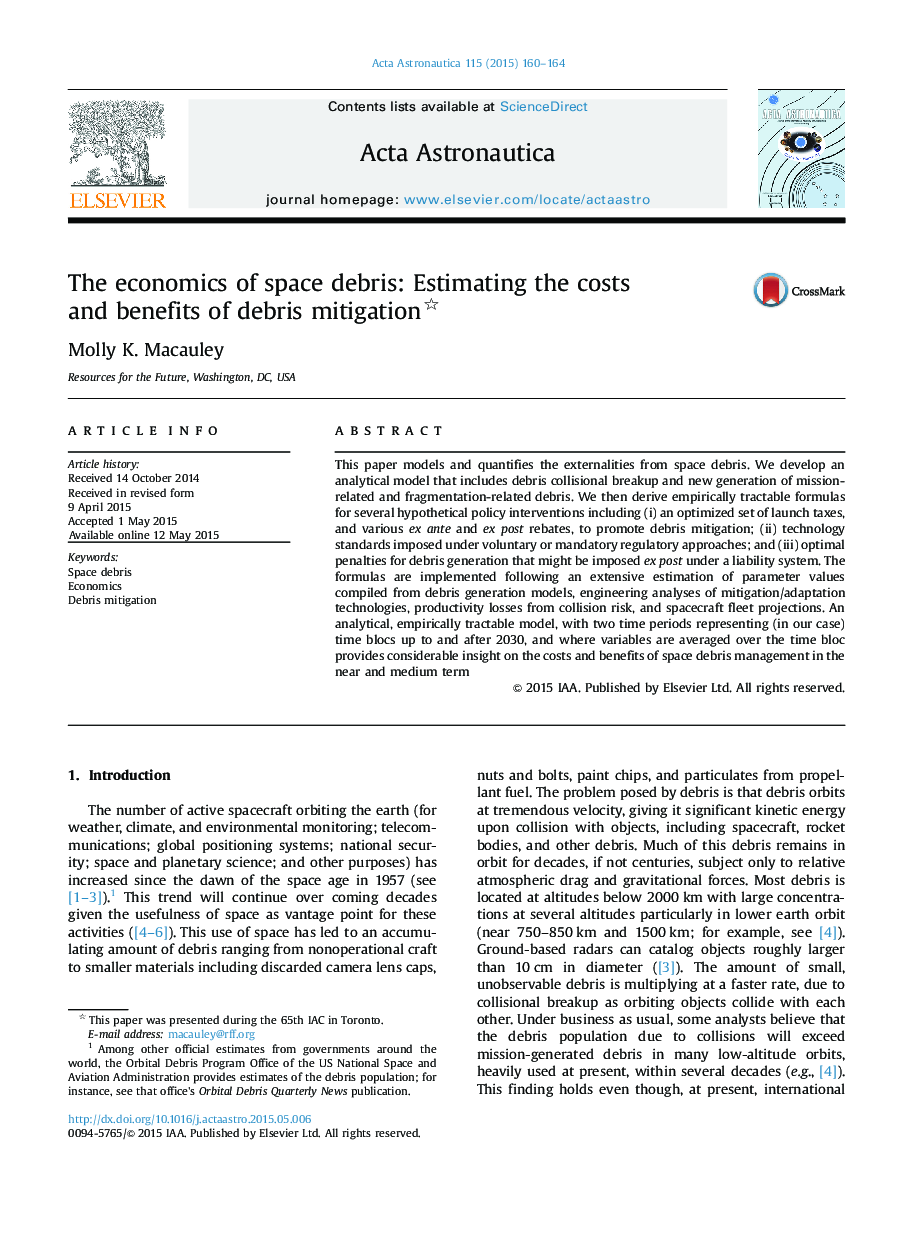| Article ID | Journal | Published Year | Pages | File Type |
|---|---|---|---|---|
| 8056408 | Acta Astronautica | 2015 | 5 Pages |
Abstract
This paper models and quantifies the externalities from space debris. We develop an analytical model that includes debris collisional breakup and new generation of mission-related and fragmentation-related debris. We then derive empirically tractable formulas for several hypothetical policy interventions including (i) an optimized set of launch taxes, and various ex ante and ex post rebates, to promote debris mitigation; (ii) technology standards imposed under voluntary or mandatory regulatory approaches; and (iii) optimal penalties for debris generation that might be imposed ex post under a liability system. The formulas are implemented following an extensive estimation of parameter values compiled from debris generation models, engineering analyses of mitigation/adaptation technologies, productivity losses from collision risk, and spacecraft fleet projections. An analytical, empirically tractable model, with two time periods representing (in our case) time blocs up to and after 2030, and where variables are averaged over the time bloc provides considerable insight on the costs and benefits of space debris management in the near and medium term
Related Topics
Physical Sciences and Engineering
Engineering
Aerospace Engineering
Authors
Molly K. Macauley,
